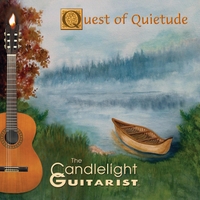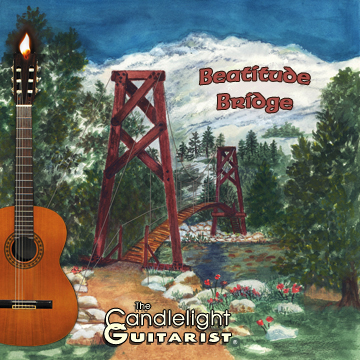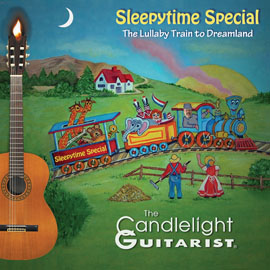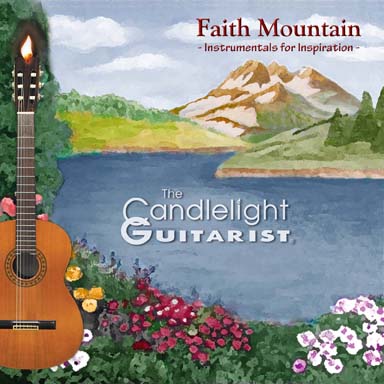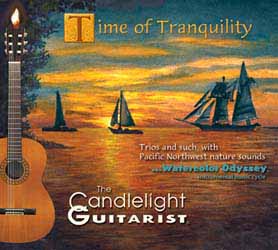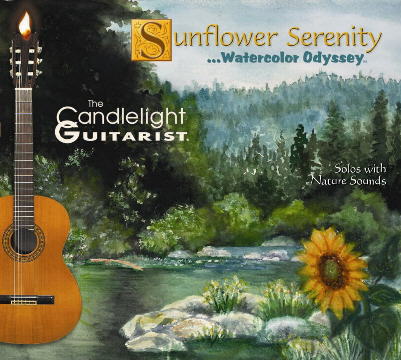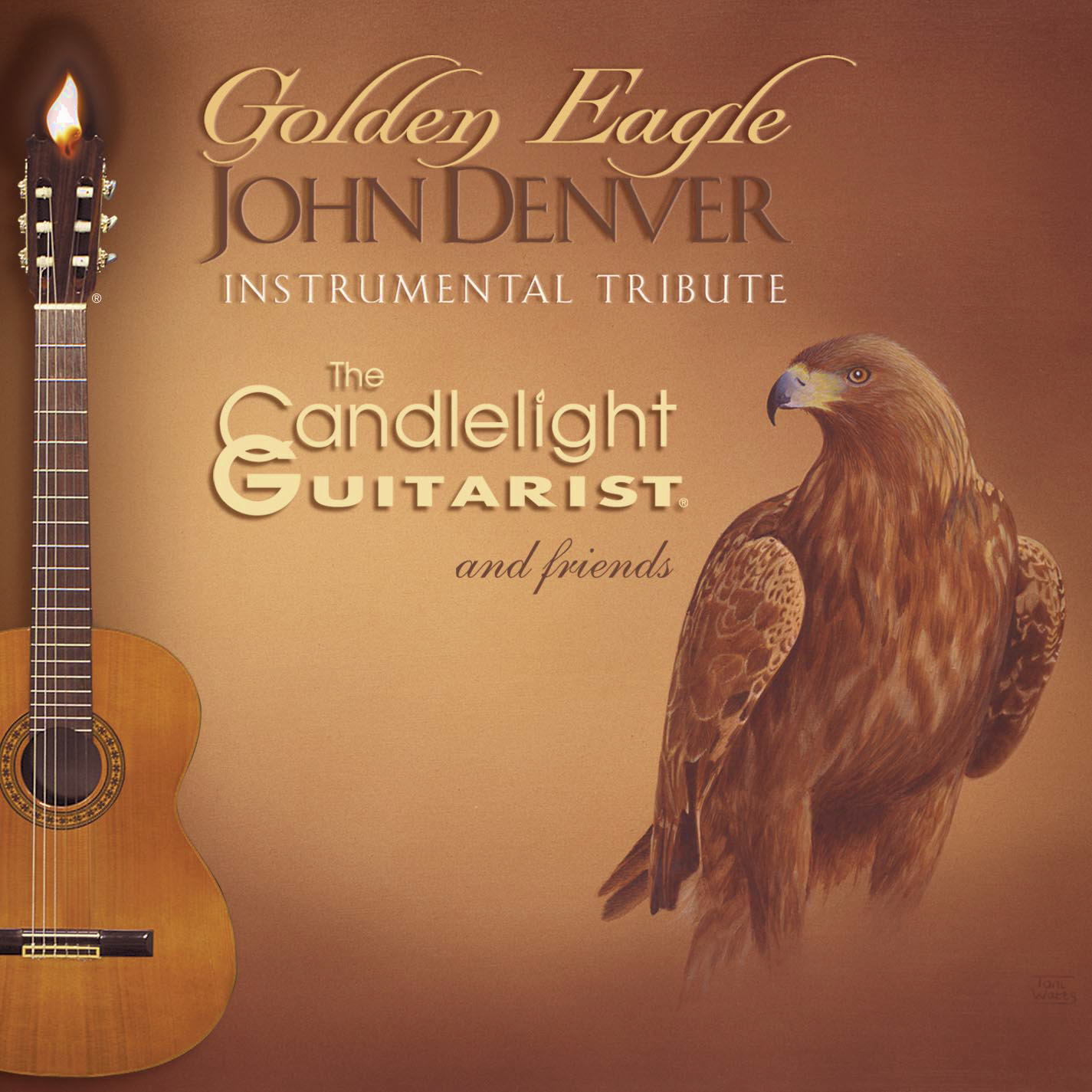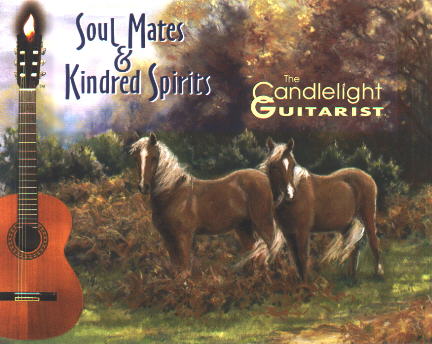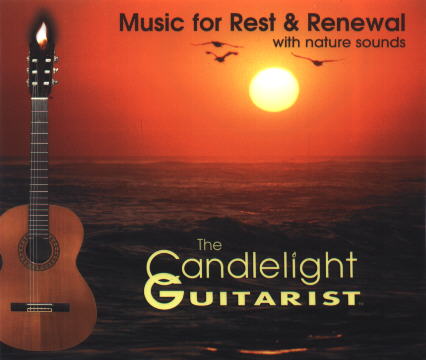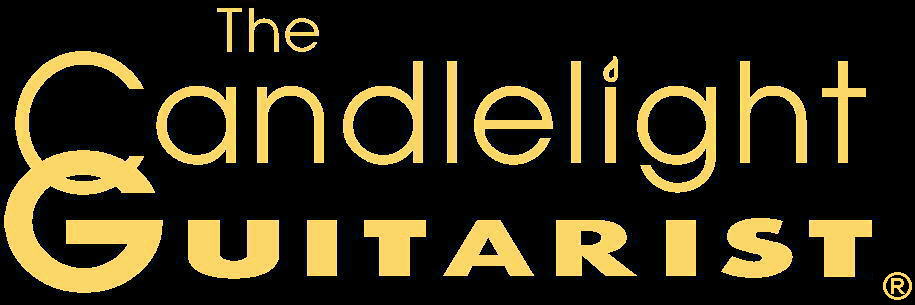
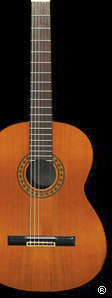
"I often come home from work stressed-out to the max, put this CD on and after a while the tension just flows away to the strains of this easy-on-the-ears music. ...I highly recommend 'Soul Mates and Kindred Spirits.' It has quiet soul and is good for the heart."
- Jana L. Perskie "ceruleana" (New York, NY USA)
Amazon.com TOP 50 Reviewer.
"Perfect for relaxing at home, at work, or in the car."
- Beth Cholette
"doctor_beth"
(Upstate NY USA),
Amazon.com TOP 500 Reviewer.
"...I feel my heart rate and breathing noticeably becalmed. 'Music for Rest & Renewal' is the perfect background music for anyone interested in receiving the benefits of sound healing."
- Cynthia Sue Larson
~RealityShifters.com
"Whether you've just been through a period of emotional turmoil, or had a bad day at the office, or are just looking for the perfect music for a few quiet hours at home: I'm sure you won't be disappointed in turning to this CD.
"
- Themis-Athena (from somewhere between California and Germany)
Amazon.com TOP 500 Reviewer.
"I found this collection to be a great relaxation tool since I received it.
Bradley Powell is a very talented artist and his work on this CD is an apt demonstration of what he is capable of. I highly recommend this CD. A must have in todays stressful world."
- Kristi Ahlers (APO, AE. Bruxelles, Belgium)
Amazon.com TOP 500 Reviewer.
"As the Executive Director of Family/Partner Abuse and Sexual Assault prevention and intervention services for a three county area, I work in a world that is often filled with crisis and interruption; fear and problemsolving; transition and disappointment; joy and sadness; budgets and grants; budgets and grants; budgets and grants!!!!
"I have searched and searched for music that would provide me with the sense of SOLITUDE that I need to work productively as well as the PEACE that I strive for in order to keep me centered and effective as a service provider, parent,community member, partner, friend, and lover.
"I ordered Rest and Renewal on a whim and a gut feeling. This CD is testament for listening more closely to one's intuition! I have listened to this CD at least twice per workday since I received it and am considering purchasing another one for home."
- Jean Ann Evanchik
(Platteville, Wisconsin United States)
"...the whole album is excellent. The pace is never hurried, thankfully. The words 'rest and renewal' are well-earned. However, I can't help but think that this album would also play well in a car during a leisurely drive through the woods or along the shores of a lake."
- Bill Binkelman, host of Wind and Wire, on KFAI "Fresh Air Radio" (Minnesota)
"The music is immediately soothing and melodic...with each playing I loved it more. If you are feeling down-in-the-dumps, then you need Brad Powell. It'll lift you out of the doldrums, guaranteed. I highly recommend this cd and his "Soul Mates & Kindred Spirits" "
- Gillian Sawaged (Canada),
Amazon.com TOP 500 Reviewer.
"I listen to The Candlelight Guitarist when doing surgery. The music is very peaceful and relaxing, and I really enjoy it."
- Tiffany Blocker, DVM (Tustin, CA)
"very relaxing...the kind of Cd you can chill with on a Sunday."
- "mistermaxxx" (usa)
Amazon.com TOP 50 Reviewer.
"Bradley Powell's music is infused with natural ambience. As rich sounds renew your spirit, you can relax into a deep sigh of the heart. His style is artistic, heart healing and filled with romantic and cultural influences. This is a blend of soulful Spanish, velvet jazz and dreamy classical guitar."
- Rebecca Johnson
"The Rebecca Review, looking for beauty in the world" (Washington State)
Amazon.com TOP 10 Reviewer.
|
Health Benefits of Relaxing Music Labor and Delivery Music (click here)
Medical study after medical study has shown that listening to relaxing music can enhance a person's health and well-being. Here is a small sampling of the medical studies and reports that have found benefits, often significant, for people when they listen to relaxing music or receive music therapy. We believe you will find, as many already have, that The Candlelight Guitarist music is not only relaxing and enjoyable, but also life enhancing for stress-reduction and overall well-being.
|
WebMD's
9-Point "Health Bailout" Package
for troubled economic times A WebMD article written by Miranda Hitti (reviewed by Louise Chang, MD) says that "chronic stress can take a toll on your body; it's linked to everything from depression to heart disease. Their 9-point plan included tips on reducing stress, including how to sleep better. Michael Breus, PhD, ABSM, WebMD's sleep expert, says it's important to relax before bedtime. Dr. Breus suggests "hot bath, relaxing music, yoga, sex, exercise, whatever works for you." The WedMD article also warns against overindulging on "comfort foods."
"Many people reach for food and eat more often when they're anxious, but it doesn't work in the long run, says Kathleen Zelman, MPH, RD, LD, WebMD's director of nutrition. Under stress, people tend to seek pleasurable foods that are high in fat and sugar, like chocolate or apple pie. Those foods may provide a 'very short-term calming effect, but that's all you get, because food really can't do anything to help you cope with stress,' says Zelman. Zelman's advice:SOURCE: WebMD Article by Miranda Hitti, and Reviewed by Louise Chang, MD, published online October 9, 2008 http://www.webmd.com/balance/news/20081009/your-9-point-health-bailout-package
|
|
Music listening enhances cognitive recovery and mood
after middle cerebral artery stroke A study conducted by researchers at the University of Helsinki, Finland, and published in the journal Brain in February 2008, reported: "music listening activates a widespread bilateral network of brain regions related to attention, semantic processing, memory, motor functions, and emotional processing. Music exposure also enhances emotional and cognitive functioning in healthy subjects and in various clinical patient groups." "This single-blind, randomized, and controlled trial was designed to determine whether everyday music listening can facilitate the recovery of cognitive functions and mood after stroke. In the acute recovery phase, 60 patients with a left or right hemisphere middle cerebral artery (MCA) stroke were randomly assigned to a music group, a language group, or a control group. ... Fifty-four patients completed the study. Results showed that recovery in the domains of verbal memory and focused attention improved significantly more in the music group than in the language and control groups. The music group also experienced less depressed and confused mood than the control group. These findings demonstrate for the first time that music listening during the early post-stroke stage can enhance cognitive recovery and prevent negative mood."
SOURCE:
Oxford Journals Oxford University Press
RELATED ARTICLES: |
|
Music Soothes Distress of Cancer Treatment An article published 1/8/2004 by the American Cancer Society reported: Music therapy is an easy, inexpensive way to help cancer patients cope with the emotional upset often caused by high-dose chemotherapy and autologous stem cell transplantation, according to researchers from New York's Memorial Sloan-Kettering Cancer Center. "This is a non-invasive, pleasant intervention that people not only appreciate, but also benefit from," said lead researcher Barrie Cassileth, PhD, of Sloan-Kettering's Integrative Medicine Service. "It helps patients get through some very challenging situations." Cassileth and her colleagues studied 69 adults who were hospitalized to undergo high-dose chemotherapy and autologous stem cell transplantation, a common treatment for cancers such as Hodgkin disease, non-Hodgkin lymphoma, and multiple myeloma. The procedure is highly toxic -- patients often experience profound fatigue, anorexia, fever and other unpleasant side effects – and because of that, emotionally grueling. About half the patients were randomly assigned to receive live music therapy from a trained therapist, while the rest received no such therapy, though they were permitted to listen to music if they wanted to. The patients answered questionnaires about their mood before the stem cell transplant procedure and on various days afterward. Patients who received music therapy reported 37% less total mood disturbance than the other patients, and 28% less anxiety.
SOURCE: |
|
Music Helps Decrease Anxiety and Promotes Relaxation A study conducted by the University of Iowa, College of Nursing (Iowa City, 52242, USA), reported that relaxing music was found to be effective for decreasing anxiety and promoting relaxation, as indicated by decreases in heart rate and respiratory rate. Subject significantly less anxiety posttest (10.1) than those subjects in the control group (16.2). Heart rate and respiratory rate decreased over time for those subjects in the music group as compared with the control group subjects.
SOURCE: University of Iowa, College of Nursing, Iowa City 52242, USA. Department of Health & Human Services. National Library of Medicine and the National Institutes of Health.
|
|
Music can help reduce chronic pain, depression, and disability A study published in the Journal of Advanced Nursing found that adults with chronic pain reported less pain, depression, and disability and felt more empowered after a week of listening to music for an hour a day. There were sixty participants, with an average age of 50, who had been suffering from a range of painful conditions, including osteoarthritis, disc problems and rheumatoid arthritis, for an average of six and a half years. They were divided into two music groups and a control group.
At the end of the trial: People in the music groups reported 19 to 25 per cent less depression than the control group. The music groups reported feeling nine to 18 per cent less disabled than those who hadn’t listened to music and said they had between five and eight per cent more power over their pain than the control group. “Our results show that listening to music had a statistically significant effect on the two experimental groups, reducing pain, depression and disability and increasing feelings of power” says Dr Siedlecki.
SOURCE: Siedliecki, S. Journal of Advanced Nursing, June 2006; vol 54: pp 553-562. News release, Journal of Advanced Nursing.
RELATED ARTICLES: |
|
Study Shows Music Improves Heart Rates, Breathing, and Blood Pressure
A study at Italy's University of Pavia, led by Luciano Bernardi, MD, indicates that music could enhance heart health. Bernardi's study included 24 healthy people in their early to mid-20s, half of whom were accomplished musicians. The study participants would lie down and rest quietly for 20 minutes, then listen to a random selection of music on headsets. Researchers monitored their heart rates, breathing, blood pressure, and other vital signs (including during the rest period). Heart rates, breathing, and blood pressure improved beyond that seen before the participants listened to any music.
SOURCES: Bernardi, L. Heart, advance online edition. News release, BMJ Specialist Journals. |
|
More Hospitals Healing With the Help of Music Therapy "Music can ease anxiety and even reduce the perception of pain. It can even decrease the need for medications that help patients deal with fear and pain" according to Joanne V. Loewy, PhD, director of the music therapy program at New York's Beth Israel Medical Center. Music also helps newborns thrive in Beth Israel's Neonatal Intensive Care Unit. Just one hour of music every day helps babies "eat more, sleep more, gain more weight. These babies are very compromised. They're on machines. The environment is typically very loud and noisy. Music softens the environment and soothes them," Dr. Loewy said.
SOURCES: WebMD article by Jeanie Lerche Davis - published Nov. 6, 2000 |
|
Post-surgery patients may feel less pain and need less pain
medicine if they listen to music, according to a new research review.
The review in The Cochrane Library shows that patients who listened to music after surgery tended to report less pain intensity and required slightly smaller doses of painkillers, compared with those who didn't listen to music. "Music should not be considered as a primary method for pain relief," the researchers write. However, they note that music may easily, inexpensively, and safely help cut surgery patients' pain and painkiller needs. The reviewers included M. Soledad Cepeda, MD, PhD. Cepeda is a visiting professor of anesthesiology at Tufts-New England Medical Center in Massachusetts, and a professor in the anesthesiology department at Javeriana University's medical school in Bogota, Colombia.
SOURCES: Cepeda, M. The Cochrane Library, 2006; Issue 2. Health Behavior News Service. |
|
Music Helped To Significantly Lower Heart Rate, Respiratory Rate, and Myocardial Oxygen Demand (as compared to patients in a similar restful environment but without music).
In a study of Forty-five patients, 15 per group, with acute myocardial infarction, immediately after the intervention, reductions in heart rate, respiratory rate, and myocardial oxygen demand were significantly greater in the experimental group than in the control group. The reductions in heart rate and respiratory rate remained significantly greater 1 hour later. Changes in heart rate, respiratory rate, and myocardial oxygen demand in the attention group did not differ significantly from changes in the other 2 groups. The 3 groups did not differ with respect to systolic blood pressure. Increases in high-frequency heart rate variability were significantly greater in the experimental and attention groups than in the control group immediately after the intervention. State anxiety was reduced in the experimental group only; the reduction was significant immediately and 1 hour after the intervention. CONCLUSIONS: Patients recovering from acute myocardial infarction may benefit from music therapy in a quiet, restful environment.
SOURCES: White JM. School of Nursing, University of Wisconsin-Milwaukee, USA. |
|
Music therapy can act as a simple and safe nursing intervention to allay anxiety and promote patient comfort. "Music can provide an effective method of reducing potentially harmful physiological responses arising from anxiety in mechanically ventilated patients."
SOURCE: Department of Health & Human Services. National Library of Medicine and the National Institutes of Health. |
|
China Study Supports Use of Music Listening as a Body-Mind Healing Modality for
Depressed Women.
The School of Nursing, Chang Gung University, Taiwan, Republic of China. investigated the physiological and psychological effects of music listening on depressed women in Taiwan. Through the use of a pretest-posttest, control group, experimental design, the heart rate, respiratory rate, blood pressure, and immediate mood states before and after a music/sound intervention were measured in 30 women. Quantitative data were analyzed descriptively and with t tests. A qualitative questionnaire was administered to participants to elicit information related to the subjective experience of music/sound listening. Significant posttest differences were found in experimental group participants' heart rates, respiratory rates, blood pressure, and tranquil mood states. Significant posttest differences also were found in control group participants' heart rates and tranquil mood states. The results support the use of music listening as a body-mind healing modality for depressed women.
SOURCE: Lai YM., School of Nursing, Chang Gung University, Taiwan, Republic of China. Issues Ment Health Nurs. 1999 May-Jun;20(3):229-46. |
|
Music Helps Reduce Anxiety and Improve Sleep Quality A study at the University of Kansas, explored the effect of a music therapy procedure (music listening paired with progressive muscle relaxation) on the reduction of anxiety and improvement of sleep patterns in abused women in shelters. Twenty-eight women residing in 2 domestic violence shelters in a Midwestern city met with the researcher on 5 consecutive days for half-hour sessions. A pretest-posttest design with control and experimental groups was used. The dependent variables included: stait anxiety measured by the STAI (Spielberger et al., 1983) before and after each music stimulus, sleep quality as measured by the PSQI (Buysse et al., 1989) on the first and last sessions, and levels of fatigue as measured by the Fatigue Scale (Lee, 1992) at waking time. The independent variable was a 20-minute recording of participant-selected music with a Progressive Muscle Relaxation script. Results indicated that music therapy constituted an effective method for reducing anxiety levels. Results also indicated a significant effect on sleep quality for the experimental group, but not for the control group. ...These results seem promising in the light of domestic violence research, which has found that a greater amount of personal resources is a crucial aspect of abused women's recovery process. Reduction of anxiety and improvement of sleep quality can be considered as increased personal resources, and seem feasible through the use of music therapy.
SOURCES: J Music Ther. 2005 Summer;42(2):140-58. Hernandez-Ruiz E.
The University of Kansas, Kansas, USA. |
|
Relaxation and Music Therapy Found Helpful for Patients In A Coronary Care Unit with
Presumptive Acute Myocardial Infarction. The purpose of this study was to determine whether relaxation and music therapy were effective in reducing stress in patients in a coronary care unit admitted with the presumptive diagnosis of acute myocardial infarction. In this experimental study, 80 patients were randomly assigned to a relaxation, music therapy, or control group. The relaxation and music therapy groups participated in three sessions over a two-day period. Stress was evaluated by apical heart rates, peripheral temperatures, cardiac complications, and qualitative patient evaluative data. Data analysis revealed that lowering apical heart rates and raising peripheral temperatures were more successful in the relaxation and music therapy groups than in the control group. The incidence of cardiac complications was found to be lower in the intervention groups, and most intervention subjects believed that such therapy was helpful. Both relaxation and music therapy are effective modalities to reduce stress in these patients.
SOURCE: Heart Lung. 1989 Nov;18(6):609-16. Guzzetta CE.
Holistic Nursing Consultants, Washington, D.C. |
|
Study Finds That Music Helps Reduce Patients' Anxiety During Minor Surgery With Local Anesthesia. Undergoing surgery with local anesthesia is stressful because patients often are aware of their surroundings. This study investigated music as a method of reducing patients' anxiety during minor surgery with local anesthesia. For this study, researchers assessed the effectiveness of music as a relaxation modality by measuring patients' vital signs and self-reported anxiety before and after surgery. Study results indicate that patients who listened to their choice of music during surgery experienced significantly lower anxiety levels, heart rates, and blood pressure than patients who did not listen to music.
SOURCE: AORN J. 2003 Feb;77(2):396-7, 401-6, 409-10. |
|
Music as Medicine (article quote) "Long recognized as a powerful means of stirring emotion and easing communication, music therapy is today gaining wider use. Not only is it helping children like Sara learn to express themselves, it's also soothing the pain of mothers delivering babies, easing communication with depressed and anxious patients, and helping stroke victims relearn language. And the more researchers learn about the workings of the brain, the more they are encouraged that music can be harnessed to assist in patient recovery."
SOURCE:
"The Sound of Healing: Music as Medicine" article by Craig H. Kliger, MD. |
|
Relaxing Music for Labor and Delivery
"...think through your preferences for comfort measures, pain relief, and medical procedures and fetal monitoring, as well as how you'd like to handle your first hours with your newborn.
Comfort measures |
|
Music Therapy Used For Inpatient Psychiatric Care
"Technology and research have identified the physiological benefits of music on the immune system (Lane, 1994; Rider et al., 1985), the benefits of music for relaxation and stress management (Davis, 1992; Fried, 1990), the application of music to memory and attention (Morton et al., 1990), and music-related long-term changes in behaviors in depressed elderly patients (Hanser and Thompson, 1994). "Using music as a means to relax the body has been studied for decades (Kibler and Rider, 1983; Rider et al., 1985, Stoudenmire, 1975). A study in 1994 by Hanser and Thompson investigated using music and relaxation techniques to train depressed elderly people to manage stress and improve sleep. The results demonstrated that when compared with the control group, two experimental groups exposed to direct/indirect music therapy and relaxation techniques were better able to manage stress. This was true both at posttest and nine-month follow-up."
SOURCE: 'Music Therapy for Inpatient Psychiatric Care in
the 1990s" Article By Carol L. Shultis, M.Ed., MT-BC, Psychiatric Times |
|
Music Can Help Caregivers Reduce Stress
WebMD has a great article called "Caregiver Tips - Caregiver Tip No. 1: Take Care of
Yourself First." The article offers some important things that you need to find time to do-just for yourself, such as:
|
